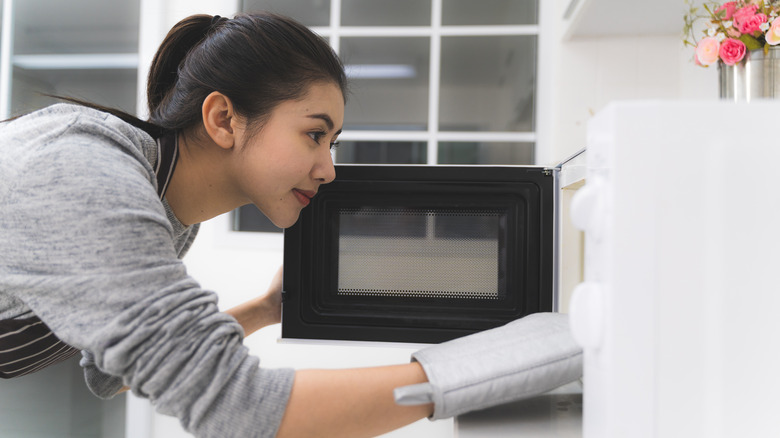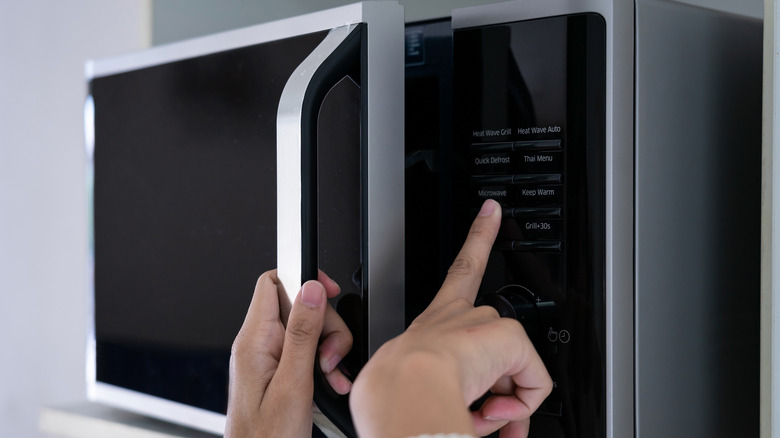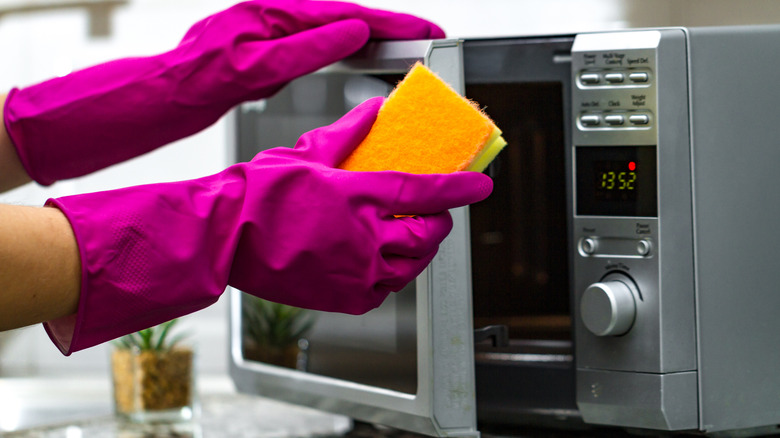Here's How Often You Should Replace Your Microwave
Microwaves are one of the easiest, most effective cooking inventions of the 20th century used on a regular basis. They have changed how tiring, messy, and time-consuming prepping food to eat can be. Additionally, microwaves efficiently save us time and energy — what would we do without them? If you don't want to ever find out, it's important to take care of your microwave properly as it deteriorates over time.
Contrary to popular belief, microwaves don't last forever, nor are they meant to; over time, they lose energy, per Bob Vila. However, most people have never replaced their microwave or have even had the thought to. Can you blame them? This is something that people rarely talk about, but it's important to know.
Indeed, like all kitchen appliances, microwaves need to be replaced eventually as they are worn down over time. Here's what you need to know about when is the right time for you to get a new microwave and what signs to look for!
It may or may not be time to replace your microwave
According to Kitchen Seer, you should replace your microwave generally every 10 years. You can replace it after seven or eight years, but if it is in good condition it should last longer. However, the quality of any household appliance depends on how much it's being used. It varies for everyone depending on the current condition, age, and problems it may have.
Even though microwaves are built to last up to 10 years, this is not always the case. Of course, the quality and care of your microwave determines how long it works. If your microwave has gross smells, food isn't cooking properly, or it makes horrible signs as food is cooking, these are good indications that it's time to replace your microwave, according to Kitchn. Other indicators it may be time to replace your microwave are the keypad and door not functioning properly.
Even if your microwave is still working after 10 years or so, it doesn't mean it's in the greatest condition because over time, microwaves lose energy. It should still be replaced as new models are approved over time that are more energy efficient, not to mention the cost of purchasing a new microwave versus the cost of a repair is generally cheaper.
Microwave care is good care
There are tips you can use to take better care of your microwave to keep it in good condition for as long as possible with the proper maintenance. There are many efficient ways you can do so, too. Do not let spills linger and don't overheat your microwave; always set the proper time for your food to heat in order to avoid overcooking and heating the microwave, as stated by Kitchen Seer.
Not only are these tips efficient, but they are easy to do. Home Owner Fix states that you can extend your microwave's lifespan by using a soft soap when cleaning it regularly, not powering the microwave while nothing is inside, giving it proper air supply, not putting anything metal inside of it, avoiding slamming the door, and using a surge protector. Home Guide Spot also emphasizes the importance of inspecting your microwave regularly as it may have problems you don't notice over time.


